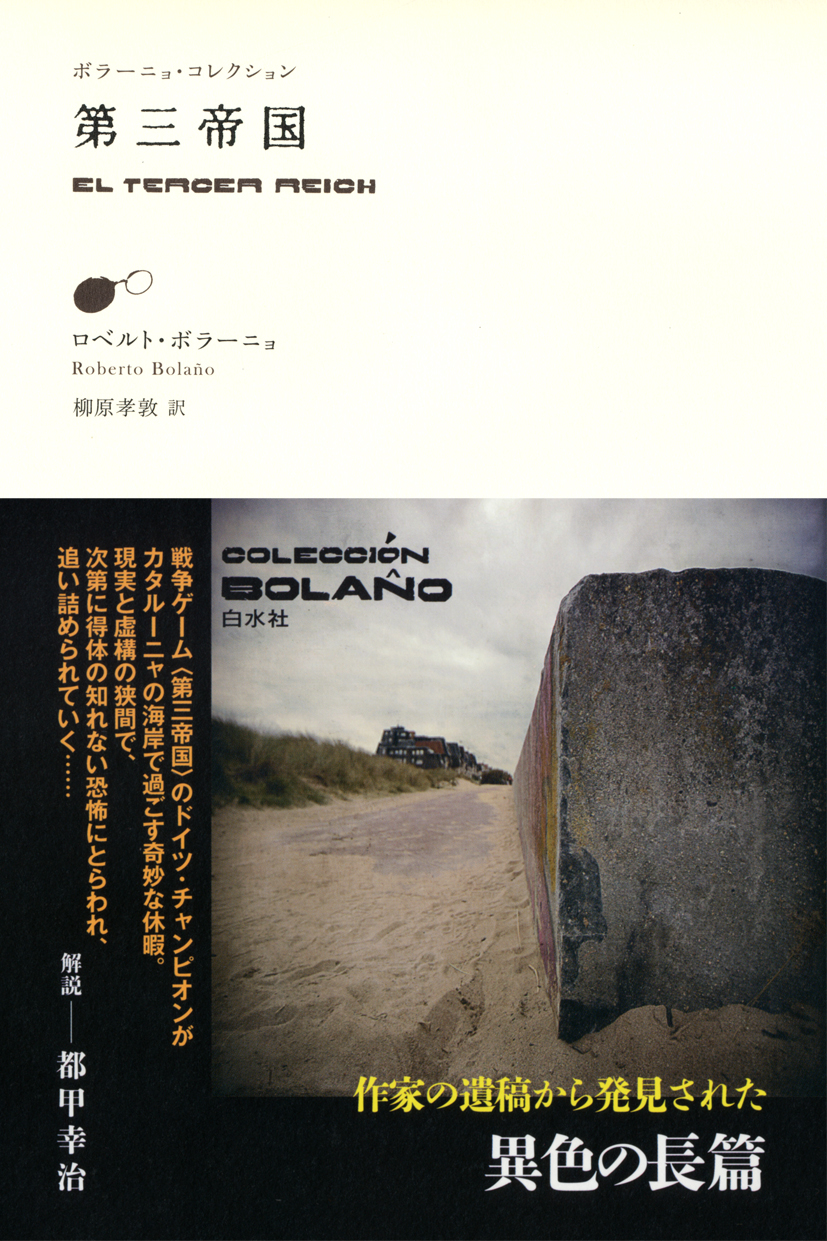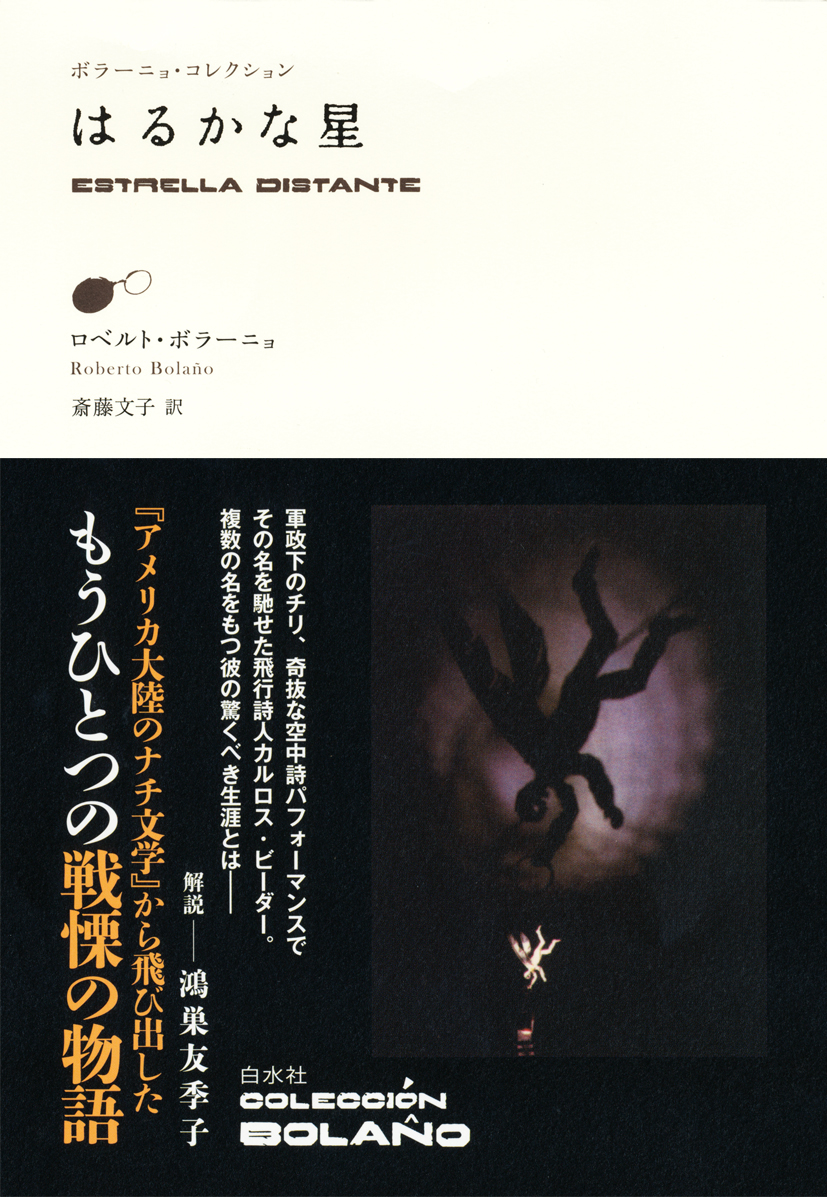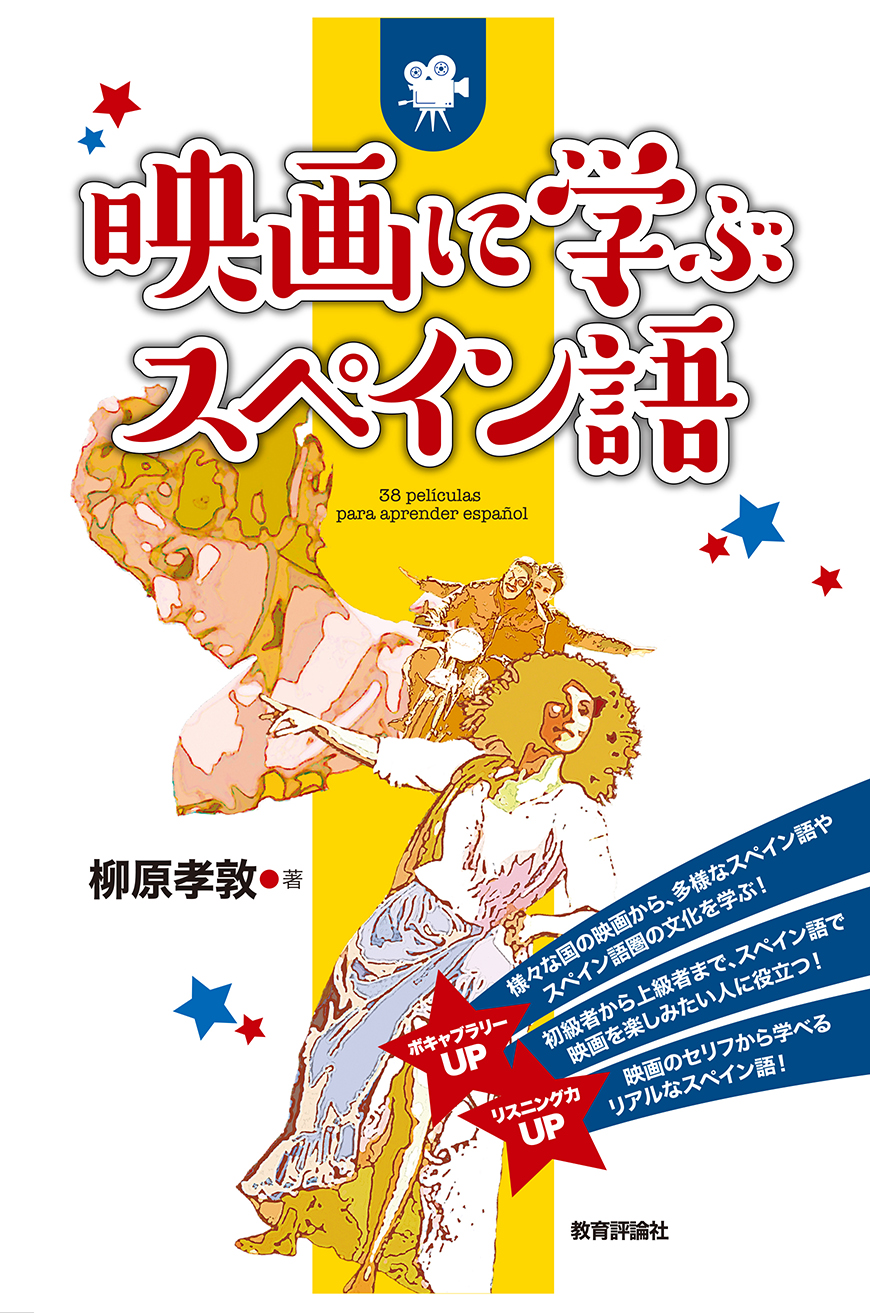
Title
Bolaño Collection Daisan-Teikoku (The Third Reich)
Size
404 pages, 127x188mm
Language
Japanese
Released
July 27, 2016
ISBN
9784560092675
Published by
Hakusuisha Publishing
Book Info
See Book Availability at Library
Japanese Page
The Third Reich is the seventh novel in the collected translated works of Roberto Bolaño (1953-2003), who, through his bestsellers such as The Savage Detectives and 2666, set the current standard for Chilean authors not only in Latin American literature but also in world literature.
After The Savage Detectives, the relatively young writer was expected to lead the next generation; however, he died about five years later, and his death was deeply regretted in the literary world. Since then, unpublished manuscripts have been unearthed and published. The Third Reich is one of his posthumously published works. Originally handwritten in 1989, the manuscript was later typed and digitized after the author purchased a computer. It was published in 2010.
The novel is written in the form of a diary by a young German man named Udo Berger who has come to a Mediterranean coastal resort region in Spain to pass the summer with his girlfriend. Udo is a board game champion and is working on developing a new strategy for a war game called “The Third Reich.” However, he ends up spending his time going to a disco every night with a German couple he befriends there and with other young locals, and thus finds it difficult to work on his game.
Just as his vacation is about to end, one member of the German couple, Charly, disappears. He appears to have been lost at sea. The women go back home because of their work, but Udo decides to stay back at the hotel. He invites El Quemado, “the Burned One,” (who rents boats to tourists on the coast for a living) to his hotel room, and they play “The Third Reich.” “The Third Reich” is a war game modeled on World War II. Its rules are complicated: the players must know the background of the actual war, and so, beginners cannot easily win against veteran opponents. However, “the Burned One” gradually improves and catches up with Udo.
It turns out that Udo is familiar with the hotel because he came to the resort with his parents when he was a child. He intends to initiate a relationship with Frau Else, the owner of the hotel and his longtime object of affection, and begins to openly pursue her after his girlfriend returns to Germany. Her husband is apparently ill and is not expected to live long. But Udo suspects his entering Udo’s room without permission, observing the state of the game and giving “the Burned One” a tip for tactics. So, one day, Udo dicides to see him. The owner hints at what awaits Udo if he loses the game, stoking his anxiety. Udo’s diary is filled with disturbing entries about the atmosphere in the resort town after summer, the possibility of Charly’s death, the shadow of death that looms over the owner, the imminent danger approaching him, and other issues.
As mentioned earlier, although this book is among Bolaño’s early works, the reader can still feel the sense of dread and violence typical of his works.
(Written by YANAGIHARA Takaatsu, Professor, Graduate School of Humanities and Sociology / 2018)



 Find a book
Find a book




